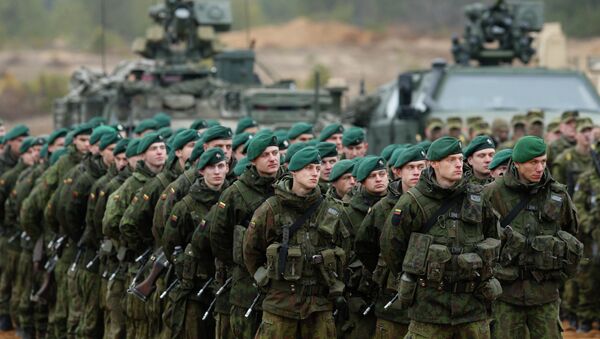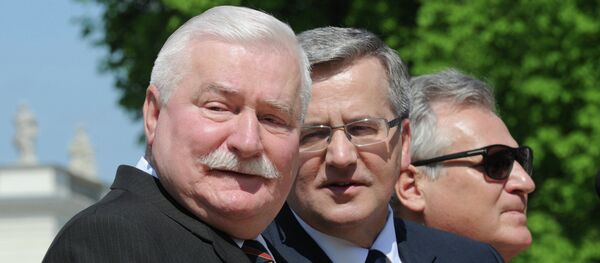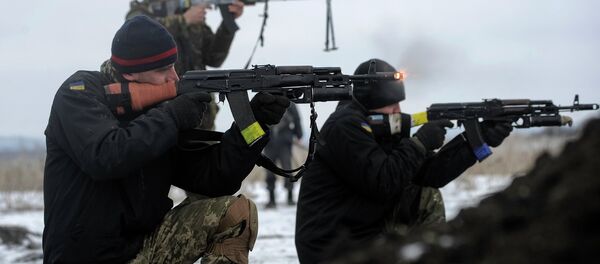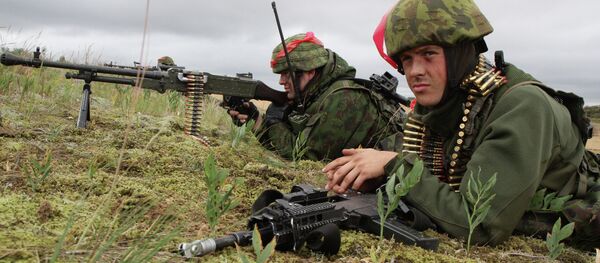"The current geopolitical environment requires us to enhance and accelerate army recruitment," Grybauskaite told reporter.
The initiative still needs to clear parliament. If it does, the first draft will take place in September 2015, according to a local news portal Delfi.
Mandatory military conscription was scrapped in Lithuania in 2008 when the country decided to build a professional army.
Lithuania has been stricken with paranoia in recent months, with the country's government raising alarm that Russia is allegedly planning on invading the country, and that Russian security services are allegedly training separatists in the country. Between February 17 and 21, a Lithuanian motorized infantry brigade conducted exercises on "reacting to threats of hybrid warfare" by fighting "separatists."
"Right now the threat at our borders has become real. It is obvious that the psychological consciousness of a threat in our society has returned. We began a peculiar stage which concluded with an important political step. In general, this restores a sense of security, the realization that threats and risks are being managed on a political level," Professor Nerijus Maliukevicus of the Institute of International Relations and Political Science at Vlinius University announced to the publication, commenting on the coming return of conscription. "If your neighbor are acting aggressively, the only chance is to provide effective deterrence, through action, not words."
The attitude of paranoia is even being instilled at an ideological level, which by far exceeds the scope of recent history, or even that of the 20th century.
Building on this argument, Jokubauskas states that Lithuania "must suppress the spreading of the enemy" through its alliance with the United States over the European Union, as European countries "avoid provoking even greater aggression" because of Russia's nuclear arsenal.
However, Lithuanians are less united in their feelings toward Russia. Although around half of those polled replied that they view Crimea's reunification with Russia negatively, most Lithuanians do not think they are better off than people in Russia, and believe that that Lithuania's economic state has worsened between 2006 and 2014.






